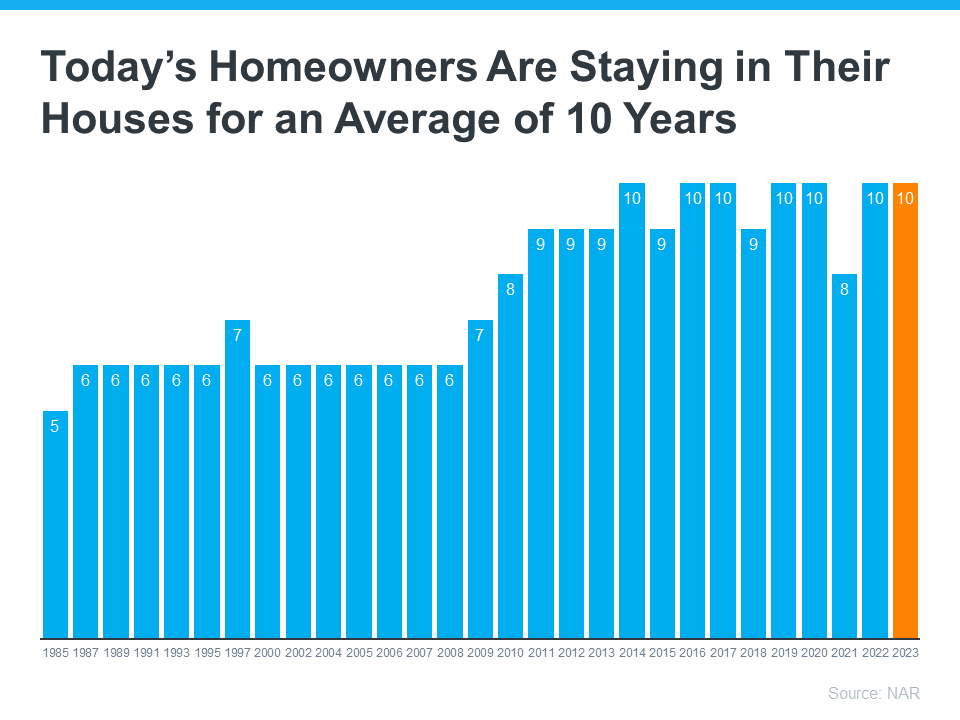Spring Cleaning Checklist

The warmer months are approaching here in the pacific northwest. Warmer weather means it is time to gear up for spring cleaning and maintenance. Regardless of whether you rent or own, a clean home not only offers a fresh start, but also enhances the comfort and enjoyment of your living space. A clean and organized home is more comfortable and enjoyable to live in. By decluttering, tidying up, and refreshing your living space, you can create a more inviting atmosphere. Whether you are tackling tasks indoors or outdoors, here’s a checklist to guide your efforts and ensure efficiency.
Indoors:
Check Your Attic:
Before the summer heat sets in, inspect your attic for sufficient insulation, signs of pests, and any potential roof leaks.
Schedule HVAC Maintenance:
Ensure optimal performance and energy efficiency by scheduling annual tune-ups for your heating and cooling systems.
Clean and Repair Window Screens:
Get ready to welcome the fresh air by repairing or replacing damaged window screens.
Clean (especially the Ceiling Fans):
Dust, allergens, and other pollutants can accumulate over the winter months, reducing your indoor air quality. Improve your indoor air quality by dusting, vacuuming, and cleaning surfaces, to remove these contaminants and create a healthier living environment. Don’t forget, you can quickly improve air circulation and energy efficiency by simply giving your ceiling fans a thorough cleaning.
Apply Weather Stripping:
Seal gaps around windows, doors, and exhaust fans to keep cool air in, hot air out, and prevent the creepy crawlers from making their way into your home.
Outdoors:
Check for Damaged Roof Shingles:
If you are not in a place to pay a professional or get on your roof yourself, use binoculars or a drone to inspect your roof for any curling, broken, or missing shingles.
Wash the Exterior:
A great way to extend the life of your exterior paint and enhance curb appeal is to wash the siding with a stiff brush and water.
Search Out Rotten Wood:
Identify and address areas of rot on both siding and trim to prevent further damage that could end up quite costly if left unaddressed.
Clean the Gutters:
Prevent overflow and flooding by cleaning out your gutters and downspouts. Don’t want to do it yourself? Hire a professional to. Don’t know one? Connect with me and I can provide you several suggestions.
Prepare Your Lawn to Grow:
Rake away dead grass, aerate the lawn, reseed bare spots, and apply spring fertilizer to promote healthy growth.
By tackling these spring cleaning and maintenance tasks, you will ensure your home is ready to shine inside and out, making the most of the beautiful seasons ahead here in the pacific northwest. Remember, if you are a homeowner, regular maintenance and cleaning can help preserve the condition of your home and prevent deterioration. This can contribute to maintaining or even increasing your home’s value over time, which is beneficial when you decide to sell.
If you are considering selling, feel free to connect with me and I can help you determine a task list of importance.
If you need motivation, check out our Spring Cleaning Spotify Playlist Here.
The Best Indoor Plants for you Health

If houseplants have taken over your interiors, you’re not alone. 🌱 While the greenery brightens up your space, and certainly looks cute, did you know that your indoor plants may be good for your health, too? I’ve been doing some investigating on the subject lately as I’ve never considered myself a green thumb, however, am officially curious.
Did you know?
🪴 Plants improve air, quality, bring beauty into your home and boost, emotional and spiritual well-being, giving you a chance to care for something.
🪴 Plants in your bedroom, could improve your sleep quality. 💤 (I’m all for this)
🪴 Plants in your kitchen, help brighten your space, especially if there’s no window.
While any plant is good for the soul and can benefit your mental health and emotional well-being, here are some top choices that are best for your health (according to the experts):
🪴 Spider Plants – these plants are known to help purify the surrounding air.
🪴 Peace Lily – these plants also flower and are aesthetically pleasing and studies show that peace lilies have air cleaning properties to help remove carbon dioxide and volatile organic compounds for the air.
🪴 Snake Plants – this is my favorite kind of plant because they generally “thrive on neglect” 😝 and have been known to remove toxins from the air.
Here are some others as well:
🪴 Ferns 🌱 Pothos 🪴 English Ivy 🌱 Succulents and Cacti 🌵Herbs 🪴 Elephant Ear Plants 🌱 Rubber Plants
So you might be asking how do house plants contribute to good health? 🤔
Along with being aesthetically pleasing, which can boost neurotransmitters like dopamine and serotonin, plants offer immediate benefits by improving mood and stress management. Cool, huh!?!
They can also provide long-term benefits, such as improving air quality which may reduce instances of headaches – or by adding moisture to the air, which helps with dry skin.
Where are my plant people? What else should we know? 🤷♀️
What Is A Fixture In Real Estate, And How Is It Determined?

How to increase the value of your house

Curious about how to get more for your home in this market?
#4 is the most important tip.
When it’s time to sell your home, it can be overwhelming to consider what needs to be done.
Here’s the thing — there are SO many ways to improve the presentation (and value) of your home that don’t require a ton of time or money. A lot of times, some of the bigger ticket home improvements don’t even translate to a large increase in your sales price.
01 — Declutter, deep clean and depersonalize.This first recommendation requires almost no money. You want to remove any distractions so that potential buyers can easily envision their life in your home.
02 — Improve the first impressionFirst impressions matter. Spend a Saturday sprucing up your landscaping and exterior. You don’t need to break the bank here. You could repaint or touch up your front door, add flowers to your window boxes, lay fresh mulch.
03 — Create a neutral palette.If you have taste specific wall colors or wall paper, considering painting the interior of your home a neutral color. Contact me for my favorite neutral paint colors.
04 — And most importantly, consider the comps. Study other homes in your neighborhood that have recently sold. How does your home compare? Are there negatives that stand out about your home that you could easily remedy? These types of considerations can help you achieve the price you desire. Remember, every home is unique. You need someone who is an expert in your real estate market to give you a personalized recommendation for what to do to increase the value of your home. I’d be happy to provide a personalized recommendation. Contact me at (360) 420-6807.
Don’t Wait Until Spring To Sell Your House

Don’t Wait Until Spring To Sell Your House
As you think about the year ahead, one of your big goals may be moving. But, how do you know when to make your move? While spring is usually the peak homebuying season, you don’t actually need to wait until spring to sell. Here’s why.
1. Take Advantage of Lower Mortgage Rates
Last October, the 30-year fixed mortgage rates peaked at 7.79%. In January, they hit their lowest level since May. That means you may not feel as locked-in to your current mortgage rate right now. That downward trend in rates has made moving more affordable now than it was just a few months ago.
Another reason today’s rates make now a good time to sell? More buyers are jumping back into the market. Many had been waiting on the sidelines for rates to fall, but now that that’s happening, they’re eager and ready to buy. That means more demand for your house. According to Sam Khater, Chief Economist at Freddie Mac:
“Given this stabilization in rates, potential homebuyers with affordability concerns have jumped off the fence back into the market.”
2. Get Ahead of Your Competition
Right now, there are still more people looking to buy a home than there are houses for sale, which puts you in a great position. But keep in mind, with the recent uptick in new listings, we’re seeing more sellers may already be re-entering the market.
Listing your house now helps you beat your competition and makes sure your house will stand out. U.S. News explains:
“When there is low housing inventory, sellers could get top dollar for their homes.”
3. Make the Most of Rising Home Prices
Experts forecast home prices will keep going up this year. What does that mean for you? If you’re ready to sell your current house and plan to buy another one, it may be a good idea to think about moving now before prices go up more. That would give you the chance to buy your next home before it gets more expensive.
4. Leverage Your Equity
Homeowners today have tremendous amounts of equity. In fact, a recent report from CoreLogic says the average homeowner with a mortgage has more than $300,000 in equity.
If you’ve been waiting to sell because you were worried about home affordability, know your equity can really help with your next move. It might even cover a big part, or maybe all, of the down payment for your next home.
Bottom Line
If you’re thinking about selling your house and moving to another one, let’s connect to get the process started now so you can get a leg up on your competition.
The Secret to Getting the Most Offers

2 of the Factors That Impact Mortgage Rates

2 of the Factors That Impact Mortgage Rates

If you’re looking to buy a home, you’ve probably been paying close attention to mortgage rates. Over the last couple of years, they hit record lows, rose dramatically, and are now dropping back down a bit. Ever wonder why?
The answer is complicated because there’s a lot that can influence mortgage rates. Here are just a few of the most impactful factors at play.
Inflation and the Federal Reserve
The Federal Reserve (Fed) doesn’t directly determine mortgage rates. But the Fed does move the Federal Funds Rate up or down in response to what’s happening with inflation, the economy, employment rates, and more. As that happens, mortgage rates tend to respond. Business Insider explains:
“The Federal Reserve slows inflation by raising the federal funds rate, which can indirectly impact mortgages. High inflation and investor expectations of more Fed rate hikes can push mortgage rates up. If investors believe the Fed may cut rates and inflation is decelerating, mortgage rates will typically trend down.”
Over the last couple of years, the Fed raised the Federal Fund Rate to try to fight inflation and, as that happened, mortgage rates jumped up, too. Fortunately, the expert outlook for inflation and mortgage rates is that both should become more favorable over the course of the year. As Danielle Hale, Chief Economist at Realtor.com, says:
“[M]ortgage rates will continue to ease in 2024 as inflation improves . . .”
There’s even talk the Fed may actually cut the Fed Funds Rate this year because inflation is cooling, even though it’s not yet back to their ideal target.
The 10-Year Treasury Yield
Additionally, mortgage companies look at the 10-Year Treasury Yield to decide how much interest to charge on home loans. If the yield goes up, mortgage rates usually go up, too. The opposite is also true. According to Investopedia:
“One frequently used government bond benchmark to which mortgage lenders often peg their interest rates is the 10-year Treasury bond yield.”
Historically, the spread between the 10-Year Treasury Yield and the 30-year fixed mortgage rate has been fairly consistent, but that’s not the case recently. That means, there’s room for mortgage rates to come down. So, keeping an eye on which way the treasury yield is trending can give experts an idea of where mortgage rates may head next.
To navigate any mortgage rate changes and their impact on your moving plans, it’s best to have a team of professionals on your side which is why I work with a trusted team of local service providers to help you navigate the real estate market.
Helpful Tips When Moving

When providing tips to my clients, I feel it is important to offer advice that can help streamline the process and make the transition smoother. Here are some of my best tips:
1️⃣ Plan ahead to avoid last minute stress. I provide my buyers with a timeline and checklist to stay organized.
2️⃣ Declutter before packing to reduce the amount of stuff you have to move and unpack.
3️⃣ Pack efficiently using sturdy boxes and packing materials to protect your belongings. It is helpful to pack rooms room by room and label each box with its contents and destination room.
4️⃣ Hire Professional Movers. It can be very helpful to hire a professional movers for heavy or valuable items. In my listing packet, I provide multiple moving companies where you can get quotes, read reviews and choose the one best for you.
5️⃣ Update your information with the postal service, banks, utilities, and other important institutions.
6️⃣ Utilities & Services: when moving, you want to arrange for the disconnection of utilities at your old home, and the connection at your new one, whereas you can transfer or set up services like internet, cable and gas.
7️⃣ Pack essentials separately so that you have a few things you need for the first day in a new home.
8️⃣ Take inventory of your belongings which can be useful for insurance purposes and to ensure nothing gets lost during the move.
9️⃣ Furniture placement plan: this one can be a tricky one and if you’re like me, you end up moving things around once you get settled in however, if you have a layout of furniture before moving day it can help save time while unpacking.
🔟 Secure valuable items (important papers, jewelry) during your move for added security.
1️⃣1️⃣ Take photos before disassembling, electronics, or furniture to remember how they were set up.
1️⃣2️⃣ Have a cleaning kit ready for both your old home and new home and clean as you go to make a final move out easier.
Obviously every move is unique, so feel free to adapt these tips based on your knees and circumstances.
Unlocking the Secrets of your Dream Home


 Facebook
Facebook
 X
X
 Pinterest
Pinterest
 Copy Link
Copy Link


